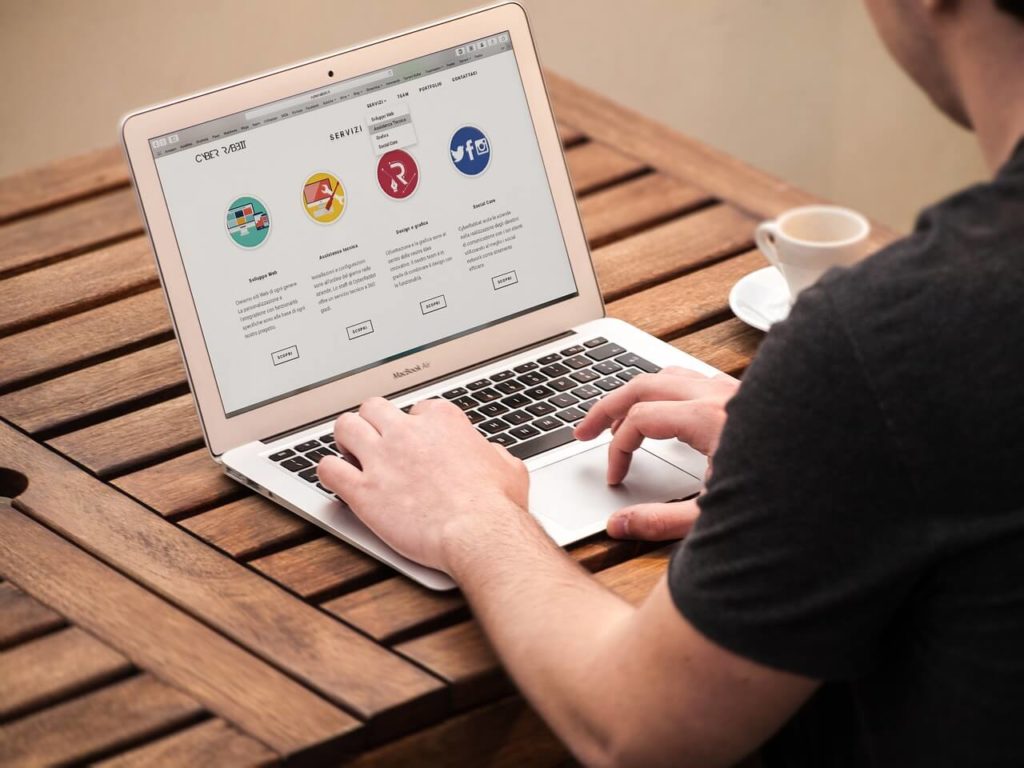In today’s digital age, the internet is the first place people go to when they need something—whether it’s a product, service, or just some general information. This has led to a major shift in how businesses operate, especially small businesses. While traditional marketing techniques like word of mouth and referrals still work, relying solely on them could mean missing out on a ton of potential customers. That’s where having a website comes into play.
Many small business owners may think, “I’ve been doing fine without a website. Do I really need one?” The answer is a resounding yes. In this article, we’ll explore why having a website is crucial for any small business, debunk common myths around it, and provide tips on how you can set up an effective online presence.
1. The Digital Shift: Why a Website Matters
Most customers these days turn to the internet first when searching for products or services. Even if your business thrives on referrals or word of mouth, you’re leaving money on the table if you don’t have an online presence.
Think about it: when someone recommends your business, where do people go to find out more about you? They Google it. If they can’t find anything, or worse, find outdated or irrelevant information, they might move on to a competitor who’s easier to access online.
Visibility is one of the biggest perks of having a website. Potential customers in your area or beyond can discover your business while doing a quick Google search. Without a website, your capacity to reach these customers decreases drastically. Even if your small business is local, the number of people searching for services online grows every day. Failing to show up in search results could make your business feel invisible.

2. Building Trust and Credibility
A website does more than just put your business on the map—it builds credibility. In today’s world, people expect businesses to have websites. When potential customers search for your business and can’t find a website, they might question your legitimacy. It’s almost like not having a phone number in the pre-internet days.
A well-designed website provides a platform to show off who you are, what you do, and why people should choose you over the competition. It also gives potential customers an opportunity to check out your work, see testimonials, and get a feel for your brand. In short, it establishes trust before a person even steps foot in your shop or calls you for more information.
3. It’s All About Accessibility
When your business only relies on face-to-face interactions, phone calls, or emails, you’re limiting the hours that potential clients can reach you. A website, on the other hand, works 24/7. It doesn’t take weekends off or close after 5 p.m. Your customers can access information about your products and services at any time, making it easier for them to engage with your business when it’s convenient for them.
Not only that, but a website can act as a virtual storefront. People can browse your products, learn about your services, or even make purchases directly from your site without ever having to step into your physical store. And even if you don’t sell products online, just being available and easy to contact will make a big difference in attracting customers.

4. Competing in the Digital Marketplace
You might be thinking, “Well, I run a small, local business. I don’t need to compete with the big guys online.” But here’s the reality: your competitors are already online. Even small, local businesses are now leveraging websites to capture their share of the market.
If you don’t have a website, you’re giving them an advantage. Imagine someone new to your town looking for a plumber, bakery, or mechanic. They pull out their phone, type in “best bakery near me,” and guess what? Your competitors, the ones with websites, are the ones showing up in the search results. Meanwhile, you’re missing out on that opportunity.
By having a website, you level the playing field. It allows your small business to show up in search engines, gives you a space to showcase your services, and puts you in direct competition with others in your industry—no matter their size.
5. Cost-Effective Marketing
One of the best things about having a website is how cost-effective it is compared to traditional advertising methods. Once your website is up and running, maintaining it is relatively inexpensive, especially when you consider the potential return on investment (ROI).
With a website, you can also integrate other digital marketing strategies, like social media, email marketing, and SEO (search engine optimisation). These methods are usually far cheaper than print ads, billboards, or even direct mail campaigns. Plus, digital marketing allows you to target specific audiences, ensuring that your marketing efforts are reaching the people who are most likely to become your customers.
And unlike a one-time newspaper ad, a website is always there, always working for you, providing constant exposure to your business. It’s like having a billboard that works 24/7 but at a fraction of the cost.
6. Showcasing Your Brand’s Story
Your website gives you control over how your brand is perceived. It’s a space where you can share your business’s story, highlight your unique selling points, and establish your brand identity. Whether through photos, blog posts, or customer testimonials, your website allows you to communicate directly with your audience in a way that other marketing methods simply can’t match.
This is particularly important for small businesses. People love supporting local businesses, but they also love knowing who they’re buying from. With a website, you can tell the story behind your business—what inspired you to start it, the values you operate on, and what makes you stand out. It adds a personal touch that can’t always come through in traditional ads or flyers.
7. Gaining Valuable Insights
A website not only helps you reach more customers, but it can also help you understand them better. With tools like Google Analytics, you can track how people are interacting with your site. You’ll get insights into things like:
- How many people visit your site
- What pages they spend the most time on
- What products or services are getting the most attention
- How they found your website (via search engines, social media, etc.)
This data is invaluable. It allows you to make informed decisions about what’s working in your business and what might need a little tweaking. You can see what your customers are interested in, and tailor your offerings to meet their needs more effectively. You’re not just throwing marketing strategies at the wall to see what sticks—you have real data to guide your decisions.

8. Debunking Common Myths About Websites
Many small business owners shy away from getting a website because of common myths and misconceptions. Let’s debunk a few of them:
- “Websites are too expensive.” While it’s true that custom websites can be pricey, there are plenty of affordable options out there, from website builders like Wix and Squarespace to affordable developers. Plus, the cost of a website is an investment in your business. It’ll pay for itself as you start reaching more customers.
- “I’m not tech-savvy enough.” You don’t need to be a tech wizard to have a website. Most platforms are user-friendly and offer templates that are easy to customise. If you’re really not comfortable, hiring a web developer to help you get started is an option.
- “I don’t have time to manage a website.” Once your website is up and running, maintaining it takes minimal effort. Sure, you’ll want to update it from time to time with new products, services, or blog posts, but the initial setup is the most time-consuming part.
9. Steps to Create Your Website
Now that you understand why having a website is crucial for your small business, here’s a quick rundown of how to get started:
- Choose a domain name: This should be your business name or something closely related to it.
- Pick a platform: Whether it’s a DIY option like Wix, Shopify, or WordPress, or hiring a developer, choose the platform that best fits your needs and budget.
- Design your website: Focus on simplicity and ease of use. Make sure your website is mobile-friendly and easy to navigate.
- Add your content: Include all the basics—your business’s story, what you offer, how people can contact you, and any relevant details like hours of operation or pricing.
- Optimise for SEO: Use keywords related to your business to help improve your visibility on search engines. Learn how to optimise your website for Search engines here
- Launch your site and spread the word: Once your website is live, promote it on social media, in emails, and via any other marketing channels you use.

